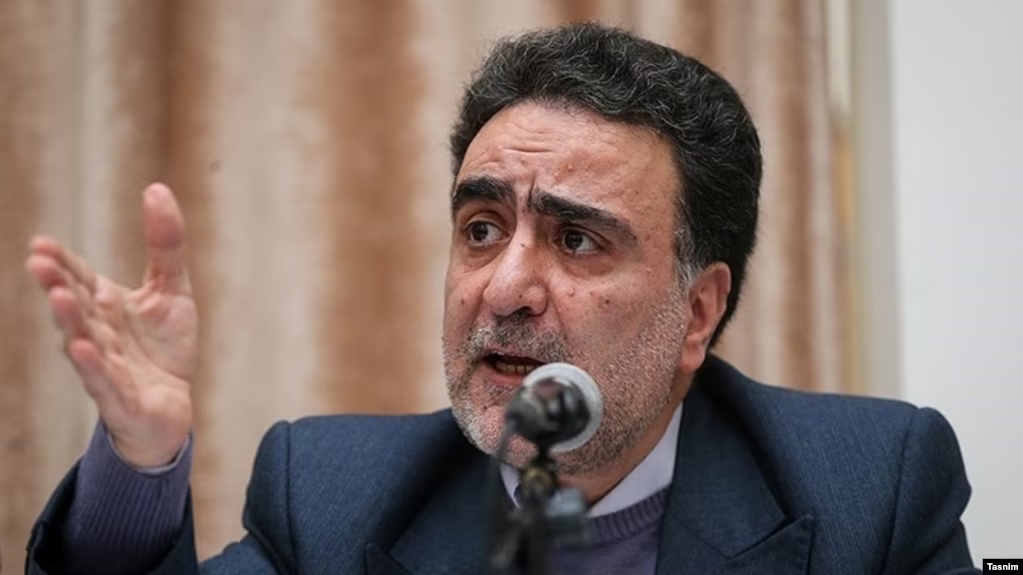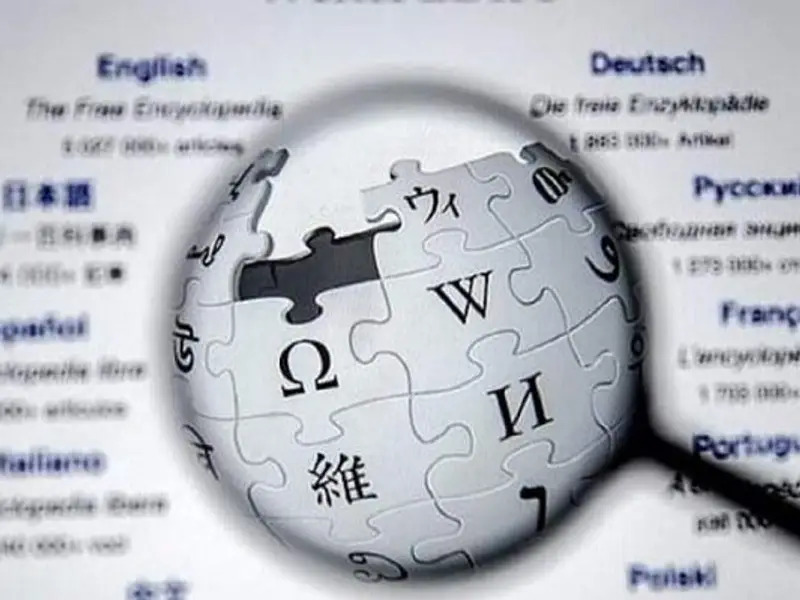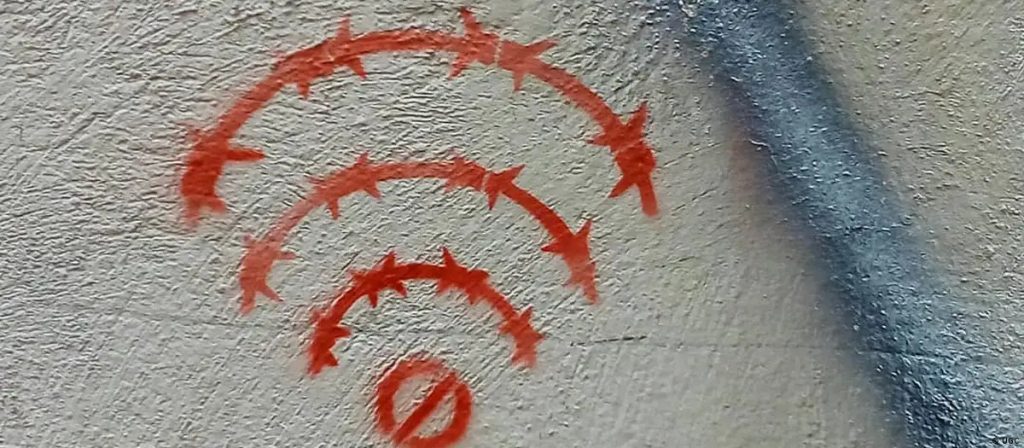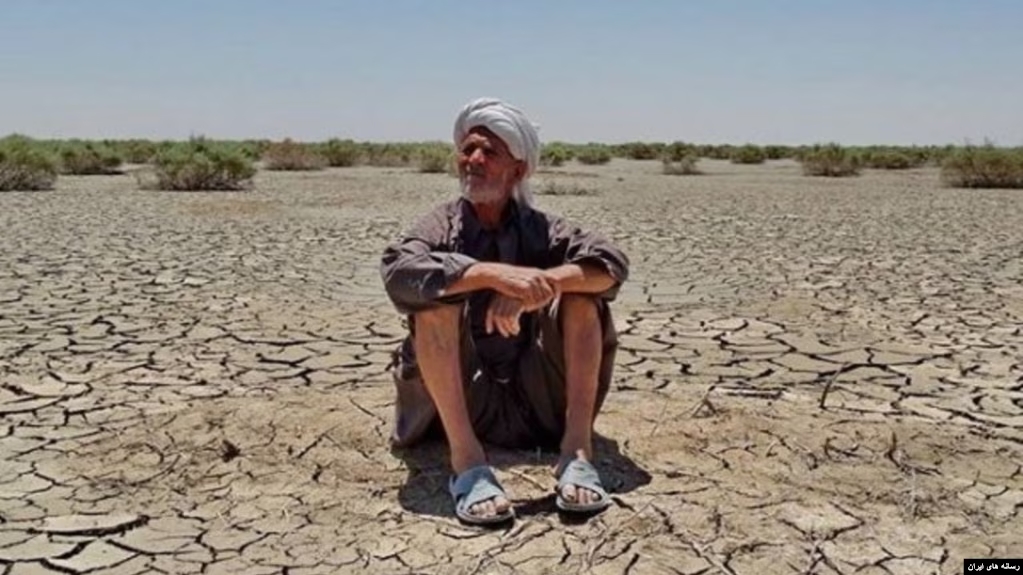
Workers’ Wages Causing Frustration
The editorial of Jahan Sanat sheds light on the fact that as we get closer to the Iranian new year, the government, workers and employers are all trapped in a very frustrating situation in which they must decide about the annual increase of wages for the new year that must be commensurate with the inflation rate – now at 40%.
The truth is bitter, but must be believed. One of the sad truths in these cold winter days is that as we approach the beginning of the new Iranian year (starting March 21), the government, workers and employers have become desperate about wages in the new year.
The government cannot find a solution for implementing the labor laws for increasing Iranian workers’ wages – which must increase by 40% commensurate with the inflation rate. The Budget and Planning Organization holds that this level of increase will open a Pandora’s box of rising inflation and wages — which is why it is doing its best to stop it.
The government, on the other hand, fears that an increase in the wages of workers proportionate to the inflation rate this year might lead to a decrease in employers’ willingness to hire workers.
The labor entities representing workers in the trilateral council of the government, workers and employers, too, have become frustrated. On the one hand, they are under growing pressure from workers and cannot return from the council empty handed just as they did last year. They are already accused of colluding with the government. Also, these labor entities are not strong enough to stand against the government.
But the most desperate and helpless of all are the workers. Iranian workers know very well that their right to strike is not recognized. And even if they go on strike, they are not only going to be replaced immediately, but they might also be punished.
As for Iranian employers, they have become frustrated and say that they have already lost confidence in industrial productivity and revenues, given the drop in people’s purchasing power.
Are there any solutions for overcoming this period of frustration and helplessness in the short term and long term? In the long term, the only way is to make the cake of national production bigger — a change that must be made, or else the country’s economy is going to be bankrupted. But what is to be done about next year’s wages? It is a tough call, but it seems that it must be accepted that wages must increase commensurate with the inflation rate which is at 40% now.
US Pursuing a Victory for Israel
The writer of Arman Melli’s editorial holds that the conditions of the Middle East war have become much more complicated than before due to Israel’s attempts at imposing its own policies on the one hand and the failure of recent negotiations among statemen on the other.
Israel has been trying to pull off an immediate military victory at any price in Gaza and Rafah to both assuage the Israeli people and find a way to handle this crisis at the same time. Israeli Prime Minister Benjamin Netanyahu tries to impose his own conditions on Palestine by forcing the residents of Gaza and Rafah to migrate to neighboring countries while continuing its fatal attacks on these cities.
Meanwhile, the recent negotiations in Cairo as well as those of US President Joe Biden and Jordan’s King Abdullah II bore no fruit.
As for the formation of an independent Palestinian government, the United States and European countries have merely uttered some impractical slogans without the will to make it happen. Nineteen years after the Oslo I Accord, it seems that these countries are adopting double-standard policies with regard to the Palestine issue.
The US President could have played a role in ending the Gaza crisis by persuading Netanyahu not to extend the war to Rafah. However, the Americans are after ensuring a victory for him so that he can get out of the crisis. Meanwhile, the war might be extended to Lebanon by the Israeli army.
Drowned in Bureaucracy While Talking of the Private Sector
The editorial of Jahan Sanat argues that the outsized scope of successive governments in Iran has left no place for the private sector to develop.
In the years after 1961 and with the increase in oil revenues and the de-escalation of domestic tensions and solid friendship with the West, the shah’s government fell into the trap of big government instead of finding a path for expanding civil institutions including families, companies, independent political parties and the media.
Iranian ministries all had expansion on their agenda. This situation accelerated after the Iranian revolution in 1979 and in the first 10 years after the victory of the revolution, a big government was created in Iran.
All governments coming to office after the Iran-Iraq War too adopted this strategy. Now governments in Iran have become too big in size and interfere in all affairs. While the basic function of the government is to preserve and uphold order and security, protecting individuals’ natural rights, creating and preserving social solidarity and providing the minimum welfare for citizens, Iranian governments have become oversized while making citizens and civil institutions small.
Most studies in Iran, contrary to other countries, are conducted by state companies. The bitter truth is that Iranian economic ministries are drowned in bureaucracy. These ministries first sign a full governmental contract and then try to impose it on the private sector. Bureaucracy in Iran, in fact, has not only drowned the economy, but has also stifled domestic and foreign policies.
Citizens’ Living Conditions and March Elections
The editorial of Jahan Sanat predicts that as the Iranian people are doubtful of the Parliament’s competence and effectiveness in dealing with their economic problems, they are not going to effectively participate in the upcoming elections in March.
The elections for the 12th term of the Parliament will be held soon across the country in March. A number of Iranians want to vote for some of the candidates, while some do not want to go to the ballot box to vote. This has turned into a big battle between citizens, parties and political figures who want to go to the ballot box and those citizens, parties and groups who are going to abstain from voting.
In the absence of any official statistics about the number of voters who will go to the ballot box to vote, any speculation and predictions about citizens willing or unwilling to vote must be made cautiously — particularly given the fact that Iranians are now struggling with a lot of economic and livelihood problems.
As a matter of fact, given the record of the 11th Parliament with regard to the economy and its inability to pass any legislation to improve Iran’s economy and increase people’s economic welfare, Iranians are not optimistic about the functioning of this legislative entity which might lead to low voter turnout.
Moreover, in the light of the fact that the “reformist” political faction is not among the candidates and many renowned figures of this faction who were after economic reforms have decided not to run in the elections, Iranians have little hope for economic reforms by the 12th Parliament.
The other point is that 10,000 candidates have been vetted and announced who do not belong to any well-known party and have no plans for improving the country’s economy or people’s difficult circumstances. So perhaps Iranian citizens are right in not participating in the elections.
More importantly is the question of Iranian citizens’ incomes and expenses. Currently, government employees know very well that their wages for the next Iranian year (starting March 21) are not going to increase significantly. They believe that the legislative branch is weak against the government.
So we must wait and see the actual number of those who go to the ballot box and vote, an issue which must be carefully observed in the capital city and the centers of the provinces.

Jailed Political Activist: Majority of People Will Not Vote in Upcoming Elections

Against the backdrop of the imminent March elections, jailed political prisoner Mostafa Tajzadeh underscored that he will not vote in the upcoming elections for the Parliament and Assembly of Experts, emphasizing that Iranian Supreme Leader Ali Khamenei is responsible for the defective political system which currently exists in Iran.
In a letter released from Evin Prison, this jailed political activist pointed to the fact that the supreme leader’s strategic mistakes have rendered elections meaningless and ineffective, adding that the supreme leader does not seem to possess political prudence and moral courage which are requirements for holding a referendum and free elections.
The release of the letter coincided with Khamenei’s public statement in which he reiterated the necessity of participating in the elections, which he identified as the solution for fixing the country’s problems.
The upcoming elections will be held on March 1. In another part of his letter, Tajzadeh stated that the Parliament is not the only center for legislation and the Iranian supreme leader considers relations with the United States, lifting mandatory hijab rules and approbatory monitoring of elections as his redlines, there will be no openings in international relations or economic prosperity, nor will there be any freedom regarding lifestyle, elections, hijab or the internet.
This jailed political activist advised the “reformists” against competing in the elections, stressing that nominating candidates and efforts for forming a “reformist” faction makes sense and is useful only when the Parliament is in charge of affairs, not the supreme leader.
Pointing to the fact that Khamenei has closed his eyes to the catastrophic realities in Iran and does not hear the protests of millions of citizens, Tajzadeh emphasized that the majority of Iranians have made up their minds to disregard the supreme leader and his state-run television and not to vote in the elections in protest against the deplorable conditions in the country.
Tajzadeh has been recurrently arrested and convicted since 2009.
Last time, he was sentenced to five years of imprisonment on charges of threatening national security, dissemination of falsehood and propaganda against the establishment in 2022 and is in prison now.
Iranian Government Censors Persian Wikipedia, Disseminates False Information

Justice for Iran, a human rights NGO, has published a documented report saying the Iranian government censors the content of Persian Wikipedia by proxy.
A large group of Persian Wikipedia users has actively changed or removed its content, especially the reports on the corruption of Iranian authorities and the massive human rights violations in the country.
According to this report, the Iranian government takes such measures to eliminate any undesirable content concerning its own role in violating human rights while disseminating false information about its dissidents and civil society.
One example in this regard is a Persian Wikipedia page about the Commander of the Iranian Army’s Ground Forces Kioumars Heydari which was updated by adding information about his role in the suppression of the November 2019 protests during which 1,500 individuals were killed. But this new content was deleted in less than an hour. Several attempts were made to upload this content again, yet it was deleted seven times.
Justice for Iran wrote that such interferences have caused concern among human rights organizations about some high-level directors of Persian Wikipedia who have close relations with Iranian officials in ministries as well as in security and intelligence institutions.
For instance, a Persian Wikipedia surveillant named Mohsen Salek, during an event at Iran’s Ministry of Culture and Islamic Guidance, talked about protecting officials’ pages on this platform against coordinated “attacks and campaigns,” promising, “We will lock those pages and do not allow any such attacks.”
Justice for Iran prepared the report on influencing, controlling and censoring Persian Wikipedia in cooperation with SOMO (the Center for Research on Multinational Corporations).
It should also be mentioned that Wikipedia is filtered in Iran. Some users, however, previously said that it could be accessed sometimes via certain internet services.
Arrest of More Than 160 Christians in Iran in One Year

The number of Christians arrested in Iran significantly increased in 2023 compared to the year before, according to reports by four Christian rights institutions.
Article 19 has published a report recently, saying that 166 Christians were arrested in Iran in the past year while the number of Christian arrestees in 2022 was 134.
The same report indicates that before June 2023 a few Christians had been taken into custody. Starting from the middle of the year, however, there was an extensive “wave” of arrests, reaching to more than 100 individuals in only three months.
Christianity is one of the three religions recognized by the Iranian Constitution. Notwithstanding, the Iranian government severely punishes Muslims who convert to other religions such as Christianity or those who promote religions other than Islam.
Seventeen Christians who were arrested during the summer of 2023 received sentences such as three to five years of imprisonment or were punished by lashes, fines and deprivation of social services, based on the 40-page report of Article 19, which was prepared in partnership with Christian Solidarity Worldwide, Middle East Concern and Open Doors International.
The report also says that a number of arrestees were targeted for distributing the Bible and more than one-third of them possessed several copies of it. Moreover, the report has asked the Iranian government to free the Christian prisoners “immediately and unconditionally” and allow them to pray freely and without fear of being persecuted or arrested.
It is notable that in 2022, two Christians were sentenced to 10 years in jail for holding religious ceremonies at their homes.
In past years, a considerable number of Iran-based Christians, especially Christian converts, had to leave their homeland and apply for asylum in other countries due to such pressures.
Using VPNs Has Become Illegal in Iran

National Virtual Space Center announced that in compliance with a ratification, using VPN (anti-filtering) in Iran has become illegal except in cases in which permits are issued.
Secretary to Iran’s Supreme Cyberspace Council Mohammad Amin Aghamiri asserted that the Ministry of Culture and Islamic Guidance, along with the economic and IT ministries, must provide a plan within a month for encouraging content producers and businesses that are active on foreign platforms to launch their activities on domestic platforms and offer the plan to the council.
According to the recent ratification, any advertisement by “juridical persons” on foreign platforms is considered illegal and banned. The Ministry of Culture and Islamic Guidance must pave the way for the implementation of this ratification with the assistance of IRIB (Iranian state-run television), law-enforcement command, the Ministry of Economic Affairs and Finance and the judiciary and must report the results to the Supreme Cyberspace Council every three months.
Lawyer Ali Mojtahedzadeh reacted to this ratification writing that the Supreme Cyberspace Council does not have the right or authority to enact legislation. He further added that this measure will result in rent seeking and discrimination, writing that after this step, 80 million users of cyberspace and senior officials will be considered as criminals.
Using VPNs has become illegal for the majority of the Iranian people after Meta company blocked the accounts affiliated with Iranian Supreme Leader Ali Khamenei on its platforms – a measure which was greatly welcomed by Iranians.
Also X (formerly Twitter) has permanently blocked the user account of Mizan, the news agency of Iran’s judiciary.
Water Crisis Worsens in Sistan and Balochistan Province

Sistan and Balochistan Province has experienced its lowest precipitation in recent months for fall and winter, with a 67% drop in its usual level of rain this year.
Despite the meteorological forecasts earlier promising good precipitation this year, Sistan and Balochistan did not have much rain, and there was only little dispersed rain in several areas of this province, which portends a dry year in this province.
The head of the Meteorological Department Office in Sistan and Balochistan recently told ILNA news agency that since the beginning of the agricultural year, there has been only 15 millimeters of rain which indicates a 67% decrease in the long run and a 40% drop compared to last year’s precipitation.
Iranian media recently reported on the migration trend from the central areas to the northern provinces of Iran, warning about the fallouts of this incident. To explain the reason for this migration, the website of Asr Iran asked, “Are the officials themselves ready to live in these poor and fully deprived regions?”
The head of the National Drought Center had warned about this issue last year, saying that the Helmand River has literally dried up resulting in an increase in migration from Sistan and Balochistan Province with migrants mostly moving to the northern regions of the country.
There is inadequate precipitation in the winter, and recently an official announced that Iran is going to face serious shortages of water next summer, warning that water resources will not be sustainable in many cities.
The mismanagement of water resources in Sistan and Balochistan Province has persisted for decades and the province is now facing one of the driest and warmest seasons in the long run.
